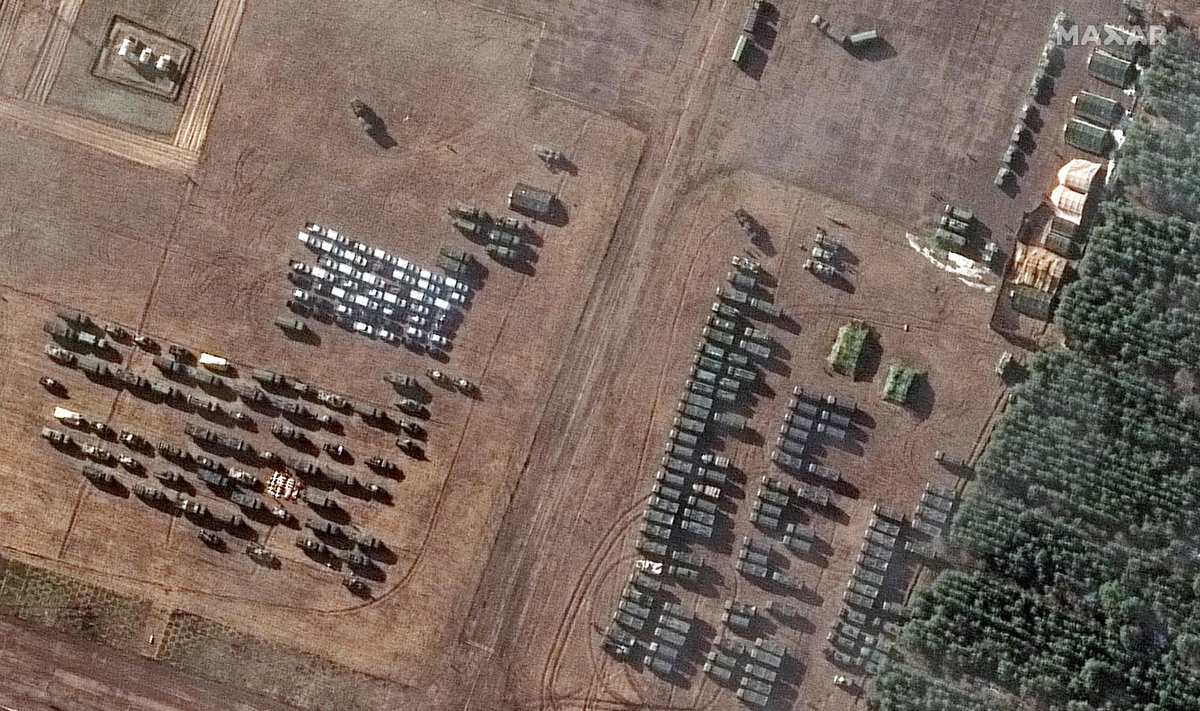"They do not pose a direct threat to Lithuania," he told reporters.
According to Anusauskas, an exercise up to a certain size can be unannounced, but if more troops are involved, it has to be announced and foreign observers must be invited.
"I have to say that we don't know the scope of the exercise because it has not been declared in any way. However, the exercise itself does not pose a direct threat," the minister said.
"[A threat] is posed when forces are deployed at the border, when they are reinforced with ammunition, logistic units, and when fuel bases are set up," he added. "There is a huge sequence of actions that indicates that a military aggression is being prepared."
Belarus, Russia's ally that shares a border with Ukraine, launched "surprise" military maneuvers on Wednesday.
Minsk says the aim of the large-scale exercise is to assess the army's readiness and capacity to respond rapidly to potential crises.
The drills in Belarus are taking place amid Russia's ongoing war in Ukraine.
Anusauskas reiterated that Russia's invasion of Ukraine has fundamentally changed the security situation in the region, which is why he expects "substantial decisions" to be taken at NATO's summit in June.
"At the Madrid summit, we expect substantial decisions on strengthening the defenses of NATO's eastern flank, including increasing the NATO battalion to a brigade-sized unit, and reliable air and missile defense in the Baltic states," he said after meeting with Luxembourg's Defense Minister Francois Bausch.
"At the moment, we have in Lithuania six soldiers – [a] transport and logistics unit," Bausch told reporters.
"I really support your minister, the government's direction that we have to protect the eastern flank more," he said.
Bausch said that Luxembourg would consider sending more troops to Lithuania, but "it depends on what will be decided in Madrid".
